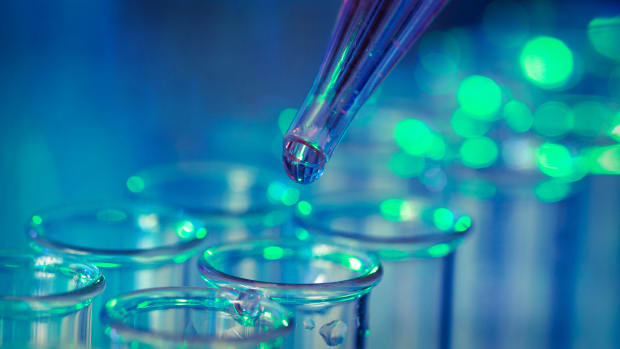The liquidity bubble of 2021 had many trendy favorites. That included synthetic biology pioneer Amyris (AMRS) , which has notched several head-turning accomplishments in the laboratory.
The industrial biotech company genetically engineers microbes to produce useful chemicals, such as cosmetic or food ingredients. It has yeast strains capable of producing cannabinoid ingredients, which are more commonly associated with cannabis plants. Another makes a cosmetic ingredient that's commonly harvested from blue sharks. Others make fragrance ingredients, including well-known scents such as patchouli.
Although the potential of the technology platform is impressive, the reality of the business has been much more sobering. Amyris has made many lofty promises to investors that were never kept. It's missed almost every annual guidance target dating back to at least 2014, over one dozen hyped ingredients are no longer in development, and three former manufacturing facilities were sold or shuttered.
Importantly, the company has never consistently manufactured ingredients at commercial scale for a profit. Management hopes a new manufacturing facility changes that. Will this time really be different? Second-quarter 2022 operating results suggest successful scale-up won't solve all the company's challenges.

Shutterstock
A New Quarter, Same Old Results
Amyris delivered one bright spot in second-quarter 2022 operating results: consumer revenue.
The business reports relatively complicated financials, but investors can simplify the income statement by splitting it in two. Amyris manufactures ingredients on behalf of other businesses, or B2B, and for its own branded consumer products. It must report each of these in three separate categories – product revenue, licenses and royalties, and grants and collaborations – but product revenue is the driving force of both B2B and consumer ingredients.
It's also the driver of progress and misery. Unfortunately, misery has a pretty strong track record.
On the one hand, Amyris delivered record quarterly consumer product revenue of $42.2 million in Q2 2022. That represented growth of 104% compared to the year-ago period. The growth was driven by launching six new consumer brands since the second half of 2021, which means they didn't contribute to financial performance in Q2 2021. That made for an easier year-over-year comparison.
On the other hand, Amyris hasn't been very focused or efficient with new product launches. The business has never been profitable. That's not going to change anytime soon, especially considering each new product launch is drowning the income statement in more red ink, not less.
Consider a few sobering stats from Q2 2022:
- Amyris notched its fourth consecutive quarter of negative product gross margin.
- The business spent $1.14 to generate every $1 in revenue over the past 12 months.
- The synthetic biology pioneer reported record sales, general, and administrative expense of $126.6 million and a record operating loss of $143.4 million.
- The business reported operating cash outflows of $147 million in the most recent quarter and $299.5 million in the first half of 2022.
- Amyris ended June 2022 worth negative $279.6 million on paper.
This is not a great point in the economic cycle to be trending deeper into the red. Tightening financial conditions threaten an already unstable business. Shareholders have been subjected to a 776% increase in the number of shares outstanding in the last five years, but more could be on the way. Unfortunately, the business could have a difficult time finding new sources of capital as investors turn wary of money-losing businesses.
Can New Promises Overcome a Poor Track Record?
Management has been pinning the hopes of Wall Street and investors on the new Barra Bonita manufacturing facility that recently began operations. It promises to manufacture all existing ingredients more efficiently, but the company's poor track record with the Brotas 1, Brotas 2, and Pradópolis manufacturing facilities – all of which were sold or nixed – doesn't instill much confidence in the latest promises.
The biomanufacturing facility started operations, which means it's now undergoing commissioning. That's when engineers work out all the kinks and ensure all systems and processes are working as expected. From there, engineers can begin ramping up production volumes until the facility reaches nameplate capacity. There will be more kinks discovered during ramp up that need to be ironed out. Finally, Barra Bonita will reach steady-state operations. It could take up to 12 months for the facility to operate as expected, which means investors need to remain patient.
To be fair, there are potential advantages of operating a continuous manufacturing facility at Barra Bonita compared to the batch facilities in the past. The problem is the inefficiency of the overall business. Even if Amyris succeeds in manufacturing ingredients at the high margins long promised to investors, it would be impossible to cover the $153 million in quarterly operating expenses with current levels of revenue.
The synthetic biology pioneer needs to refocus the geographic footprint of its consumer brands, significantly reduce SG&A expenses, and likely reduce headcount to increase the chances it survives the upcoming economic downturn. Investors may not want to hear this, but this time may really be different. As in, tightening financial conditions may be what ultimately drives the company into insolvency.







